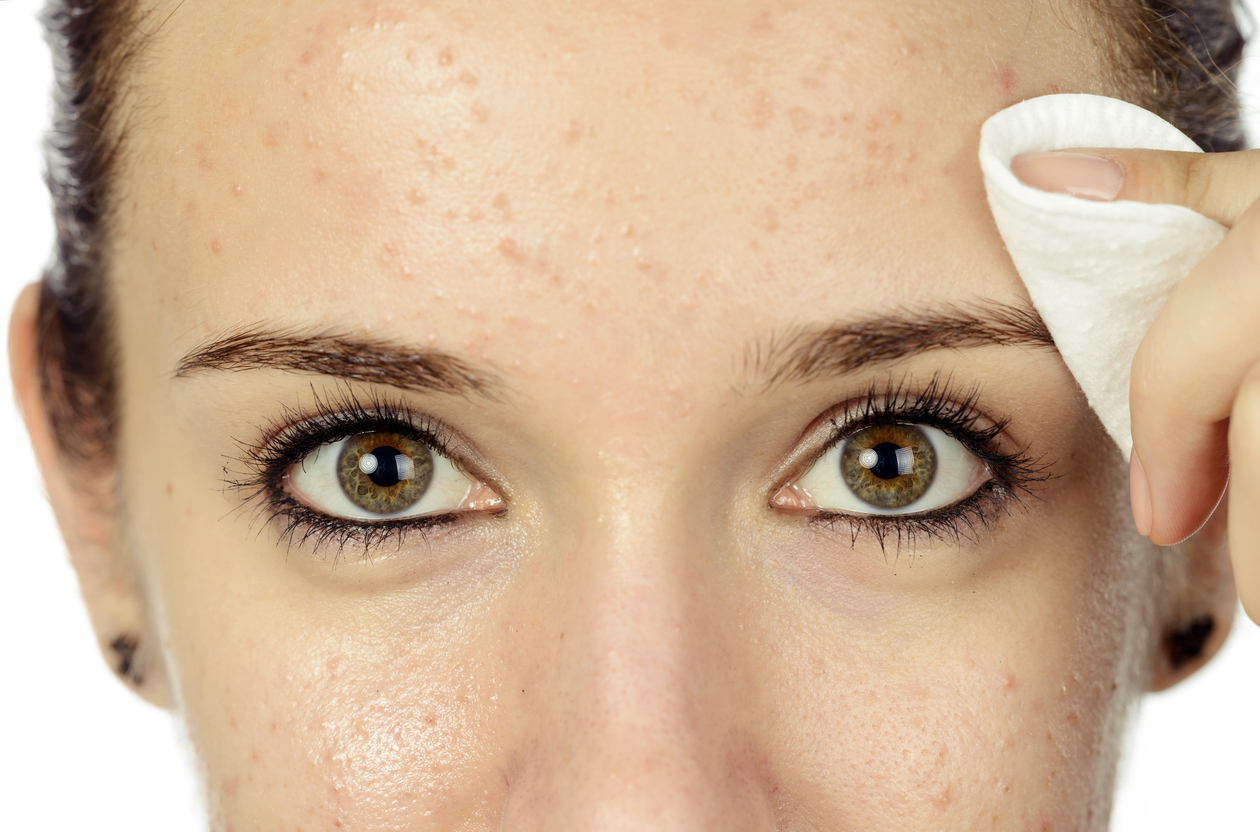Oily skin
The over production of sebum gives the skin unwanted, shiny and greasy appearance!!…

Oily skin is a very common dermatological problem. Skin needs a certain amount of natural oils to keep the skin moisturized and healthy. The natural oil produced by the skin is called sebum. The cause of oily skin is over production of sebum from the sebaceous glands.
The over production of sebum gives the skin unwanted, shiny and greasy appearance. Genetic and hormone changes play a definite role. Pregnancy, menstrual cycle, puberty, dehydration, oily foods, and certain foods like desserts, milk derivatives and high-stress levels can also be the reason for oily skin.
Oily skin presents as a shiny or greasy appearance, with very large or obvious pores on skin, which gets clogged leading to blackheads and persistent acne.
Patients suffering from oily skin should consult a dermatologist for the best way to protect the skin and prevent further damage to the skin.
Oily Skin Treatment at FMS Skin and Hair Clinics
- Cleansing with gentle, foaming face wash or non oily cleanser
- Avoiding harsh abrasive oil based or alcohol cleansers
- Use mild oily free moisturizer
- Use sunscreen indoors as well as outdoors
- Wash face twice daily, and also after exercise
- Use oil free, water based makeup
- Use medicated pads or blotters during the day
- Not to touch your face throughout the day
- Topical and dermatological treatments helps in avoiding oily skin
Tropical Treatments:
- Retinols are a form of vitamin A, which are used as ingredients in various skin lotions, creams, gels and serums. Topical retinol (adaptalene, tretinoin etc) helps in skin aging, acne, acne scars, wrinkles, large pores, melasma etc. Retinol increases skin cell production. It helps exfoliates your skin and increases collagen production, which can reduce the appearance of fine lines and wrinkles, giving your skin a fresher, plump appearance. As retinol makes your skin sensitive, it is advisable to use a sunscreen. A consultation by a board certified dermatologist can help you with an optimum strength of retinol recommended for your skin type
- Salicylic acid is a type beta hydroxy acid. It breaks down the stickiness that holds dead skin cells together, allowing them to become sloughed away, taking excess sebum with them. Salicylic acid may cause dryness and flaking of skin, so it’s best to start with a low concentration solution and use it along with a moisturiser to begin with. It’s is used mainly to treat acne prone skin, And also an effective treatment for oily skin
- A form of vitamin B3, niacinamide is an effective oily skin treatment, helping to reduce the amount of sebum produced by the skin and shrinks the size of the pores.
- Topical antibiotics like benzoyl peroxide and various other antimacrolides decreases the skin bacteria, which indirectly reduces sebum production. Plus Dietary changes also helps in the treatment of oily skin as they act as definite triggers for exacerbation.
ORAL FORMULATIONS
- Oral Retinoids like oral isotretinoin reduces the levels of sebum within the skin. It does by decreasing the size & secretion of sebaceous glands thereby tightening the pores which in turn reduces the amount of sebum they can produce.
- Hormonal acne of that of PCOS or going through puberty can cause an increase in androgen levels in women, leading to oily skin. Oral contraceptives and anti-androgen drugs such as spironolactone (also known as Aldactone) tablets help to block the androgen hormone receptors which helps to suppress the action of these hormones.
- Olumacostat Glasaretil, L-Carnitine, Licochalcone A can also inhibit the production of sebum. It works well for oily skin as it effectively reduces sebum production and pore size. Moreover, it also protects the skin, keeping it healthy, due to its anti-inflammatory and antioxidant properties.
Dermatological Procedures For Oily Skin Treatment
Chemical Peels: Superficial chemical peels with α-hydroxy acid (glycolic acid) or B hydroxyl acid (salicylic acid) target sebum secretion, especially in oily skin type. They also help with gentle desquamation, thereby exfoliating adhered keratinocytes, leading to sebum reduction.
Botox Treatment: Botulinum Toxin is otherwise known as Botox, the injectable substance that helps to freeze wrinkles and fine lines. But it also known to help reduce sebum production and oiliness.
Photo Therapy: Photodynamic therapy is used to help manage acne prone skin, but it can also help to control excess oil in the skin. The therapy involves shining light of a certain wavelength and dose directly onto the skin. This helps to destroy the cells that produce sebum in the pores of the skin.
